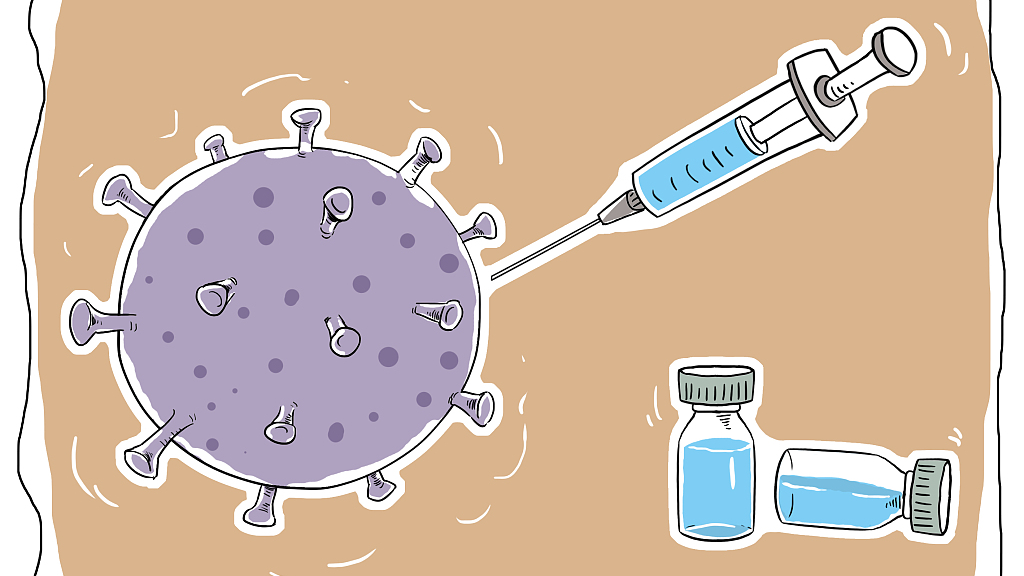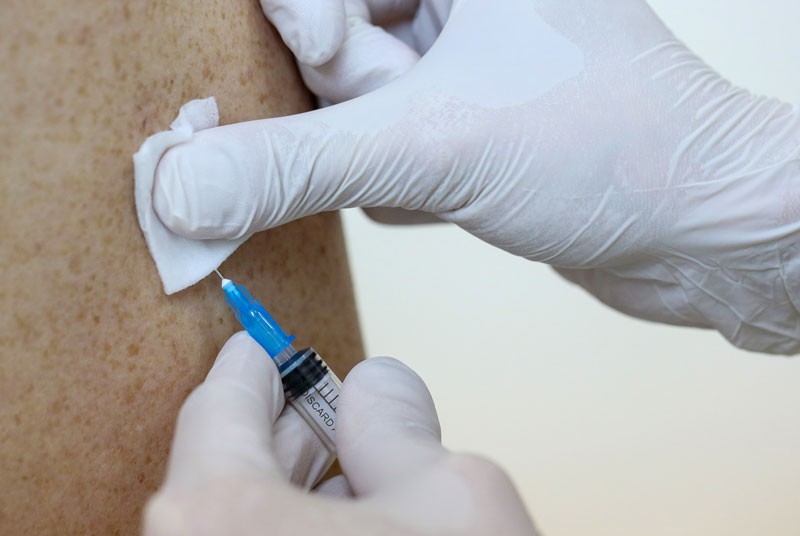
The Oxford vaccine study confirms large amounts of the coronavirus spike protein are produced with great accuracy. /CFP
The Oxford vaccine study confirms large amounts of the coronavirus spike protein are produced with great accuracy. /CFP
News reports this week have had a widely contrasting impact on hopes that an end may be in sight for COVID-19.
Optimism has been generated by researchers in the UK, who are claiming that a vaccine they have developed has shown promising results in trials. At the same time, a study has come to the worrying conclusion that immunity to the virus may only be temporary and anyone who has contracted it may be vulnerable to reinfection.
On October 23, the UK media widely reported Prof. Sarah Gilbert from Oxford University, who is leading a vaccine trial, as saying: "The study confirms large amounts of the coronavirus spike protein are produced with great accuracy, and this goes a long way to explaining the success of the vaccine in inducing a strong immune response."
Currently in phase III clinical trials on tens of thousands of people worldwide, the vaccine could be ready by the end of the year and rolled out wholesale by the spring of 2021, researchers say.
However, another study has cast doubts on the effectiveness of any vaccine against the coronavirus, should one be found.
Research by Imperial College London published earlier this week found that between June 20 and September 28, the number of people in the UK who tested positive for antibodies fell from an estimated 6 percent of the population to 4.4 percent.
This suggests that immunity to the coronavirus may only last a few months, and should a vaccine be developed, it may well have to be administered frequently, perhaps twice a year.
In another development, Nature magazine reported on October 20 that the UK government has announced plans for a "human challenge trial" in which "young, healthy people will be intentionally exposed to the virus responsible for COVID-19." The experiment is set to begin in January in a London hospital if it receives final regulatory and ethical approvals.
The aim of a challenge trial is to speed up the development of an effective vaccine. However, the approach is controversial, since thousands of people have to be deliberately infected.
In ordinary studies, volunteers are encouraged to lead a normal existence, except that they are regularly tested for infection. The hope is that, with time, a significant difference in infection rates will become evident between those who have received a vaccine and those who haven't. The drawback is that it may be months before many of the participants are infected, if at all.

A vaccine is being administered. /Getty
A vaccine is being administered. /Getty
What makes a challenge study different is that the volunteers are deliberately exposed to the virus after being given a candidate vaccine.
Supporters say challenge trials can be far quicker than regular vaccine tests, potentially shortening the wait until the world has access to an effective vaccine.
However, critics question the need to expose healthy people to COVID-19, when vaccine development is moving quickly.
According to an AP report, 46 potential vaccines were already in human testing around the world as of October 20, with 11 of them in late-stage trials. The first definitive results are expected later this year or in early 2021.
Opponents also argue that too little is known about COVID-19 to make challenge trials safe. While young people rarely die of the disease, there is increasing evidence that they can be left with long-term debilitating conditions affecting the lungs, heart and other organs.
With so much continuing uncertainty surrounding COVID-19, it seems sensible to explore every avenue in the search for a vaccine.
As Dr. Michael Jacobs, a London-based consultant in infectious diseases, told AP: "I don't think many people think that what we're doing as scientists is searching for a silver bullet… We're going to need a whole raft of interventions in order to control this pandemic."